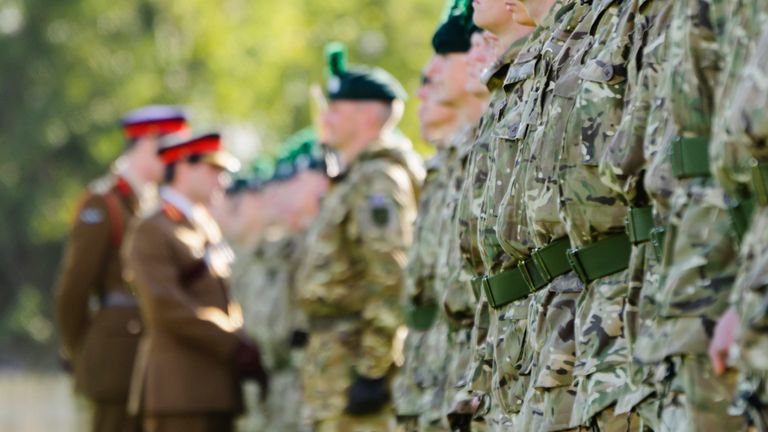Foreign nationals allowed into armed forces without having lived in the UK
The move comes as the British armed forces struggle to recruit enough personnel to fill a shortfall in their ranks.
Monday 5 November 2018 11:29, UK
Foreign nationals who live abroad will be eligible to join the armed forces, as British residency requirements for service are scrapped.
The Ministry of Defence has removed the need for Commonwealth citizens to have lived in the UK for five years before applying for service, ministers announced on Monday.
The military hopes to recruit 1,350 extra personnel from overseas every year to the Navy, Army and Air Force.
It comes as the armed forces are struggling to recruit enough servicemen and women to fill a shortfall in their ranks.
In April, a National Audit Office report said the full-time military was running at a 5.7% shortfall.
A further 8,200 regulars and 2,400 engineers were needed to fill the "largest gap in a decade", the report added, while intelligence analysts and pilots were also in demand.
Applicants from countries including India, Australia, Canada and Fiji will be considered for all roles in the forces, without having lived in the UK.
The army will begin the admissions from early next year, while the Navy and RAF will begin the process immediately.
Other than the Nepalese Gurkhas and applicants from the Republic of Ireland who can enrol under a special arrangement, those from outside the Commonwealth will still need British citizenship to apply.
In January the army unveiled a recruitment advertising campaign reported to have cost £1.6 million.
It intended to encourage more people from different backgrounds, genders, sexualities and faiths to join up.
However it was criticised for failing to target those most interested in joining the forces.
Colonel Richard Kemp, former commander of British forces in Afghanistan, said the main group of people considering signing up are more worried about "how they are going to face combat".
He added: "This also reflects the fact that the army, like the rest of government, is being forced down a route of political correctness.
"What is most important is that the army recruits and is full of soldiers.
"It's of secondary importance that they reflect the composition of society."



